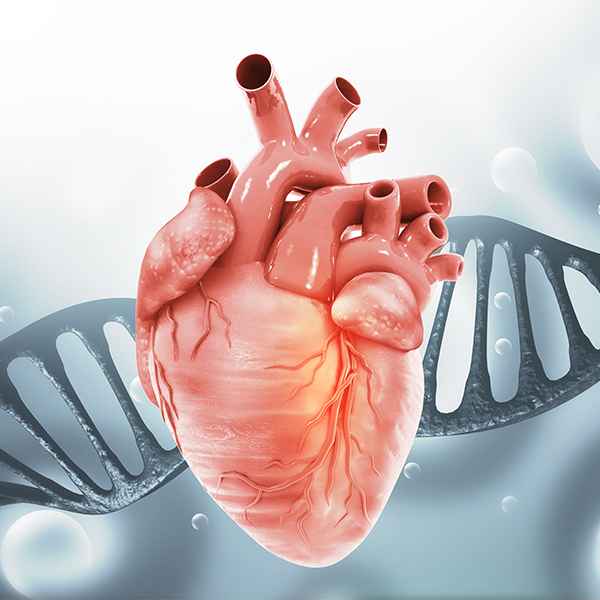-
Mayo Clinic Q and A: Self-care steps can keep your heart healthy during the holidays

DEAR MAYO CLINIC: I have read that heart attacks are more common around the holidays. Why does that happen? Is there anything I can do to lower my risk? I currently take blood pressure medication, and heart disease runs in my family.
ANSWER: Heart attacks, along with heart problems in general, are more common around the holidays. Various factors can play into this, including stress, travel, disrupted schedules, changes in diet and even environmental factors. Fortunately, many self-care steps can help you keep your heart healthy.
One of the biggest challenges this time of year is healthy eating. For people with cardiovascular health problems, choosing a heart-healthy diet amid an abundance of holiday foods can be daunting. But not straying too far from your normal diet is important.
Keep portion sizes reasonable and limit fatty foods. Eating too much can lead to chest pain or shortness of breath in some people with heart problems. Drink small amounts of alcohol, if any, as alcohol can raise your risk for heart rhythm problems and heart attack. Men should not drink more than two alcoholic beverages a day. Women should not have more than one.
Watch the amount of salt, or sodium, you consume. If your heart pumping function is reduced or if you have heart failure, your ability to manage fluid and to process salt is diminished. To limit fluid retention in such cases, a low-salt diet often is recommended. Controlling salt can be hard, however, when you eat out or dine at someone else’s home. Ask the cook if he or she might limit the amount of salt added. Find out which foods are lower in salt. Limit canned and prepared foods, along with gravies and sauces, as they tend to be very high in sodium.
Travel and schedule changes also can be barriers to heart health during the holidays. Staying on schedule with your medications can be challenging when you switch time zones or when you are away from your daily routines. But taking your medication as prescribed is critical. Set up reminders to yourself or ask someone to help keep you on track. If you are planning to travel to another time zone, ask your pharmacist if medication schedule changes are necessary.
Winter weather also may increase the use of wood burning stoves and fireplaces, but it is important to have proper ventilation. There is a fair amount of data that indicates increased exposure to certain pollutants and particulate matter can increase the risk of both heart and pulmonary issues. Older individuals or those with existing cardiac conditions should consider dressing in layers and limit time they are exposed to wood smoke. As much as possible, continue the self-care you do at home. For example, if you weigh yourself every day to help maintain your fluid balance, find a scale where you can do that. If a walk is part of your routine, invite your family to go with you and enjoy some company along with the exercise.
Finally, it is important to keep stress in check. Increased stress can raise a person’s risk for a heart attack. We think of the holiday season as a happy time, but that isn’t always reality. For some people, the holidays can be sad and stressful. If that is your situation, try to give yourself a break. Plan and do what is reasonable. If you have feelings of sadness or depression that last more than two weeks, see your health care professional.
If you start to feel sick, seek help. Don’t ignore symptoms because you feel badly about disrupting a holiday gathering. Tell someone right away if you notice new or changing chest discomfort, especially if it radiates to your back or to your arm, neck or jaw. Other symptoms of heart problems include shortness of breath, feeling clammy or light-headed, an irregular heartbeat, and swelling in your legs. Getting medical help is particularly critical if these symptoms last or if they don’t improve after taking your usual medications.
The holidays are a high-risk time for heart problems, especially in people who have existing heart conditions. Pay attention to your body. As much as possible, stick to a heart-healthy lifestyle. And, above all, if you have symptoms of heart problems, ask for help right away. — Dr. Sharonne Hayes, Cardiovascular Medicine, Mayo Clinic, Rochester, Minnesota
****************************
Related Articles
- Mayo Clinic Minute: Recognizing 'holiday heart' published 12/12/22
- Mayo Clinic Minute: How to burn off holiday party calories published 12/9/22
- Mayo Clinic Q and A: Holiday stress and mindfulness published 12/8/22
- Mayo Clinic Q&A podcast: Holiday travel, gatherings likely to increase the spread of respiratory viruses published 12/2/22
- Heart-smart cranberry apple crisp recipe for the holidays published 11/18/22
- News Release: Religious practices, spirituality associated with higher levels of heart health among African Americans published 8/24/22
- Mayo Clinic Minute: ‘Forever chemicals’ found in thousands of household products may affect women’s heart health published 7/20/22
- Mayo Clinic Minute: The role of cholesterol in heart health published 2/18/22
- Mayo Clinic Q and A: Know your heart health numbers published 2/17/22
Related Articles







